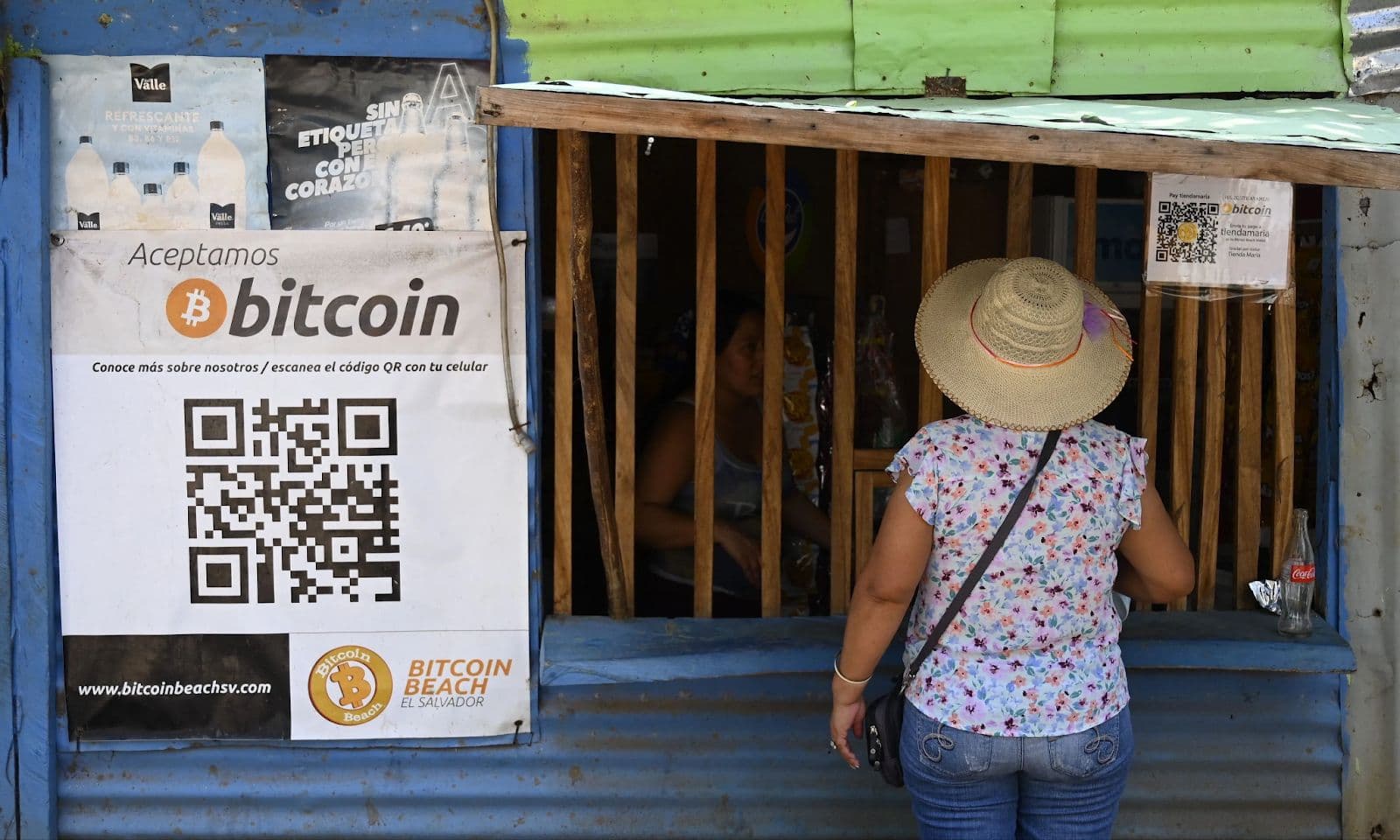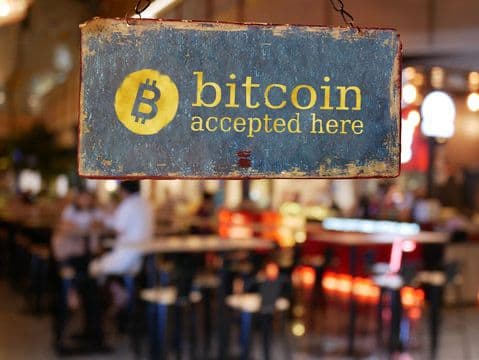Industry
May 25, 2023The Rise of Crypto in Developing Nations — Why are countries with hyperinflation ditching the USD?

In light of a global shift, an increasing number of developing nations are diverging from the U.S. dollar (USD) and other fiat currencies, while redirecting their focus towards digital currencies like Bitcoin. In recent months, nations such as Lebanon have experienced a staggering inflation rate of 264%, and reports have shown that interest in crypto adoption has risen substantially in the country. South of the equator, Zimbabwe has been battling currency volatility and inflation for over a decade. In 2009, the country adopted the USD as its currency following a period of hyperinflation that left the local currency worthless.
The Zimbabwe dollar was reintroduced in 2019 to revive the local economy, but volatility ensued again. In their latest attempt to revive their nation’s economy, Zimbabwe sold millions in gold-backed digital tokens, in spite of warnings from the International Monetary Fund (IMF).
Despite the USD's longstanding position as the world's most dominant reserve currency and the symbol of economic affluence, developing nations are driven by the urgency to safeguard their wealth and fortify their economies in the face of soaring inflation, escalating interest rates and looming recessions.
The Appeal of Cryptocurrencies
Cryptocurrencies, often perceived as volatile assets in some regions, hold a different appeal for nations grappling with severe hyperinflation, economic instability, and limited banking access. These countries see digital currencies as a safe haven, offering stability, independence from traditional banking systems, financial inclusivity, and an opportunity to reduce reliance on the USD. El Salvador's decision to fully adopt Bitcoin as legal tender and ditch the USD reflects this sentiment.
As President Nayib Bukele once stated, "It's game over for the dollar, Bitcoin is the future." Following El Salvador's lead, other developing nations recognize the strategic value of embracing digital currencies, seeking to enhance financial resilience, achieve independence, and unlock new avenues for growth and prosperity.
This article examines the primary forces that have inspired countries all over the world to adopt digital currencies as a medium of exchange and follow the path of trailblazers, such as El Salvador.

Strong Reliance to USD
In the global financial landscape, the dominance of the U.S. dollar (USD) has been a defining characteristic for decades. Many nations, both developed and developing, have relied heavily on the USD as a reserve currency and for international trade. However, the year 2023 has brought forth significant challenges for the U.S. economy, leading to concerns and shifts in global dynamics.
Emerging economies grouped under the acronym BRICS, which includes Brazil, Russia, India, China, and South Africa, have made strategic efforts to depeg their currencies from the USD. Additionally, these nations are actively promoting the Chinese Yuan as a potential reserve currency. This move has the ability to reshape the global economic landscape and disrupt the traditional dominance of the USD.
For many nations, the risks associated with a weakening dollar and the potential for a financial crisis are causes for concern. The implications of a possible collapse or devaluation of the USD could have severe consequences for economies worldwide. Smaller economies, in particular, are more vulnerable to such instability and cannot afford to bear the brunt of another financial crisis.
In light of these circumstances, El Salvador made the decision to reduce its heavy reliance on the USD by adopting Bitcoin as a legal tender. By embracing cryptocurrency, specifically Bitcoin, El Salvador aimed to diversify its currency holdings and reduce its exposure to the risks associated with a single fiat currency. This move not only seeks to safeguard the country's economic stability but also serves as a strategic response to the evolving financial landscape.
The adoption of Bitcoin as a legal tender in El Salvador represents a forward-thinking approach to protect the nation's financial well-being. It allows for greater flexibility and resilience in the face of potential economic disruptions caused by reckless fiat printing or rate hikes in the United States. By embracing cryptocurrencies, El Salvador is positioning itself at the forefront of innovative financial solutions, recognizing the potential benefits that digital assets and blockchain technology offer in terms of stability, security, and diversification.
Remittances and Cross-border Transactions
In addition to reducing reliance on the USD and diversifying currency holdings, El Salvador's adoption of Bitcoin as legal tender was also driven by the aim to address the costs associated with remittances (sending money to a recipient who lives abroad) and cross-border transfers. Traditional banking systems often impose high fees and lengthy processing times for overseas transactions, posing challenges for individuals and businesses involved. Bitcoin's decentralized nature and low transaction fees offer a compelling alternative to traditional banking systems. By utilizing Bitcoin, El Salvador sought to provide its citizens with a more cost-effective and seamless method of conducting transactions, both within the country and across borders. Since Bitcoin eliminates the need for intermediaries, such as banks, this greatly reduces transaction costs and saves time.
The impact of adopting cryptocurrencies for remittances and cross-border transfers goes beyond cost savings. It enhances financial inclusion by providing underserved citizens with access to a more attainable and efficient financial system. This empowerment allows individuals to have greater control over their financial transactions and enhances their ability to participate in economic activities.
Financial Inclusion
Financial inclusion is a crucial aspect of the appeal of cryptocurrencies, particularly for the unbanked population in developing countries. Around 1.4 billion adults globally lack access to traditional banking services, according to the World Bank. This exclusion from the formal financial system limits their ability to engage in economic activities, save money, or access credit. However, cryptocurrencies offer an innovative solution by enabling individuals to participate in the global economy without the need for a traditional bank account.
With cryptocurrencies, individuals can store, send, and receive funds securely through digital wallets. This newfound financial access empowers unbanked individuals to take control of their finances, start businesses, and improve their economic prospects. Cryptocurrencies provide a bridge that connects them to the global financial ecosystem, unlocking opportunities for financial growth and stability.
Additionally, cryptocurrencies have the potential to revolutionize the way financial services are delivered in developing countries. By leveraging blockchain technology, decentralized finance (DeFi) platforms can offer various financial services, such as lending, savings, and insurance, directly to individuals without relying on conventional intermediaries.
Scarce Supply of Bitcoin
In addition to the aforementioned benefits, cryptocurrencies, particularly Bitcoin, provide a unique safeguard against inflation, a significant concern in many developing nations. Unstable local currencies and rampant hyperinflation erode the value of people's savings and undermine economic stability. Cryptocurrencies offer an alternative store of value that can protect individuals and businesses from the devastating effects of inflation.
Bitcoin, in particular, stands out due to its limited supply. With a predetermined cap of 21 million coins, Bitcoin operates on a deflationary model, meaning that its supply is finite and cannot be arbitrarily increased by any central authority. This scarcity gives Bitcoin its inherent value proposition as a store of wealth and a hedge against inflationary pressures.
Stimulate Growth and Domestic Consumption
Countries worldwide are recognizing the potential benefits of adopting cryptocurrencies to stimulate growth and domestic consumption. For instance, Switzerland, known as the "Crypto Valley," has created a supportive environment for blockchain and cryptocurrency businesses. This approach has attracted startups, global exchanges, and industry leaders, driving economic growth, innovation, and job opportunities.
Similarly, Singapore has positioned itself as a prominent fintech and blockchain hub. The government's proactive encouragement of cryptocurrencies and blockchain solutions has attracted local and international investment, resulting in a thriving cryptocurrency ecosystem. This ecosystem, comprising exchanges, startups, and research institutions, has bolstered Singapore's reputation as a global fintech destination.
By embracing cryptocurrencies, countries can tap into the growing global interest in digital assets. As more individuals and institutional investors participate in the cryptocurrency market, countries seen as cryptocurrency-friendly are likely to attract investment and experience increased economic activity. A robust cryptocurrency ecosystem can fuel job creation, foster technological advancements, and attract talent from around the world.

Future Outlook
Developing countries that embrace blockchain innovation can potentially leapfrog orthodox systems, reduce corruption, and foster economic development.
While challenges remain, including regulatory uncertainties and the need for technological infrastructure, developing countries see cryptocurrencies as a way to overcome financial barriers, promote economic growth, and empower their citizens. As these nations explore the potential of cryptocurrencies, they are reshaping the future of finance and challenging the dominance of traditional fiat currencies.
By offering an array of comprehensive solutions, Chain empowers organizations in developing countries to seamlessly integrate blockchain into their operations. Whether it's facilitating secure and transparent financial transactions, establishing immutable supply chain networks, or enabling decentralized governance systems, Chain's user-friendly interface and intuitive tools make blockchain accessible to a wide range of users, regardless of technical expertise.
With minimal overhead costs and a 24/7 development team on standby, Chain's services provide a cost-effective solution for organizations operating with limited resources. By leveraging the decentralized nature of blockchain, these services eliminate the need for intermediaries, reducing transaction costs, enhancing efficiency, and promoting financial inclusivity. To learn how your organization can benefit, visit https://www.chain.com.
DISCLAIMER: NOT FINANCIAL OR INVESTMENT ADVICE
The information provided in this article does not constitute investment advice, financial advice, trading advice, or any other sort of advice and you should not treat any of the website’s content as such. Do conduct your own due diligence and consult your financial advisor before making any investment decisions.
About Chain
Chain is a blockchain infrastructure solution company that has been on a mission to enable a smarter and more connected economy since 2014. Chain offers builders in the Web3 industry services that help streamline the process of developing, and maintaining their blockchain infrastructures. Chain implements a SaaS model for its products that addresses the complexities of overall blockchain management. Chain offers a variety of products such as Ledger, Cloud, and NFTs as a service. Companies who choose to utilize Chain’s services will be able to free up resources for developers and cut costs so that clients can focus on their own products and customer experience. Learn more: https://chain.com.
Connect with Chain for the latest updates.
Twitter: twitter.com/Chain
Telegram: t.me/Chain & https://t.me/ChainAnnouncements
Medium: blog.chain.com
Instagram: instagram.com/Chain
Facebook: facebook.com/Chain
YouTube: youtube.com/chain
TikTok: tiktok.com/@chain_wallet
Chain News & Updates
Latest News & Updates
Sign up for the Chain Newsletter - a weekly roundup of new platform features and the latest from the industry.
